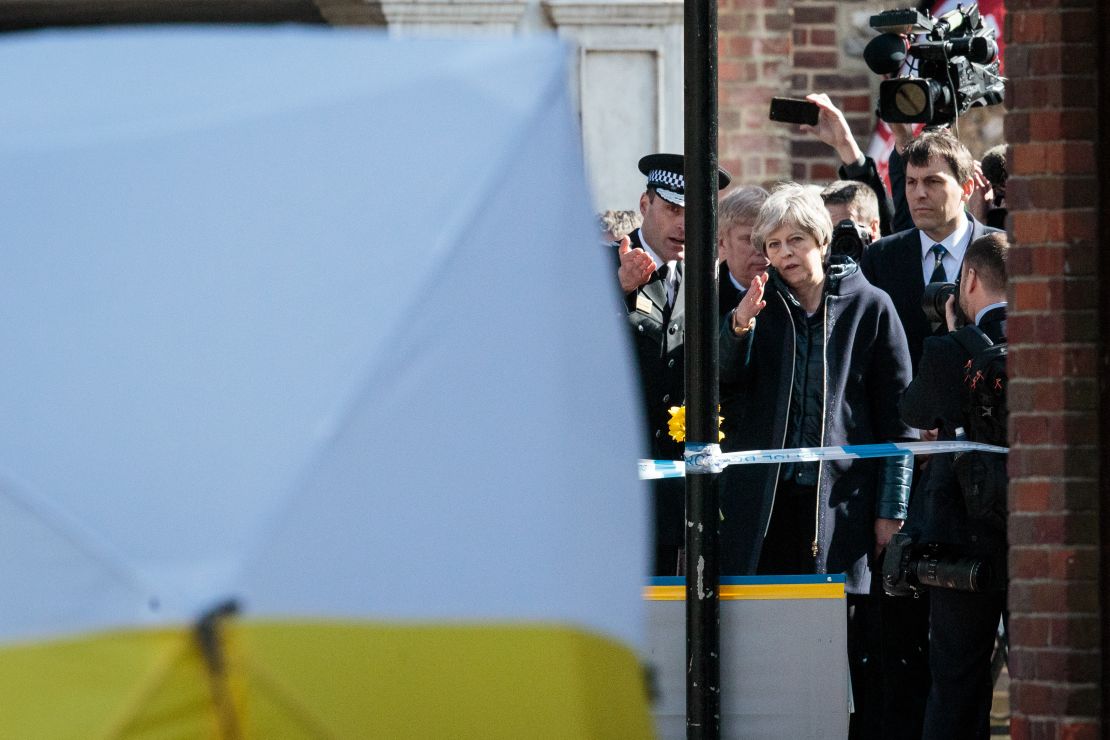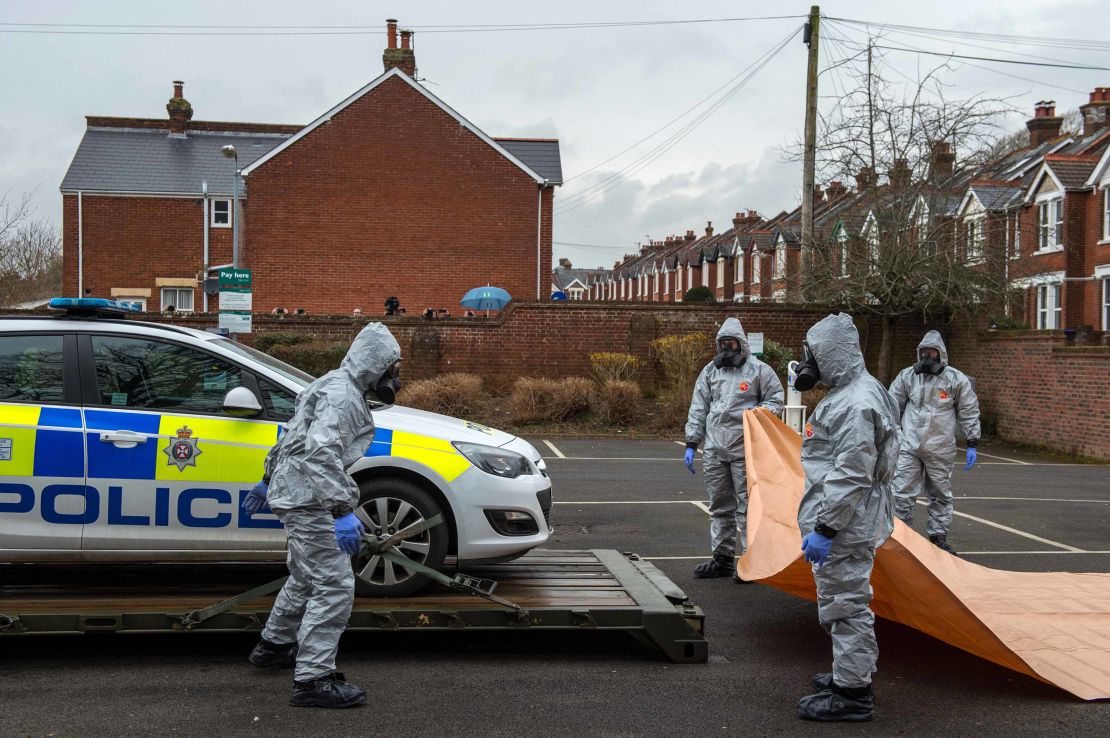Russia’s Foreign Ministry ordered the expulsion of 23 British diplomats from Russia on Saturday in a tit-for-tat response to Britain’s decision to expel Russian envoys in connection with the poisoning of a former Russian double agent and his daughter on British soil.
The ministry also declared it was closing the British Consulate General in St. Petersburg and the British Council in Russia, in a step beyond the measures taken by Britain. The British Council is a cultural institute with artistic, language and educational programs.
The UK diplomats have a week to leave, the Russian Foreign Ministry said, adding that its actions came “in response to the provocative actions of the British side and groundless accusations” against Russia over the Salisbury attack.
“The British side is warned that in case of further unfriendly actions against Russia, the Russian side reserves the right to take further retaliatory measures,” the ministry said.
Russian Senator Igor Morozov, a veteran of the Russian Service of External Intelligence, claimed that the British Council was shut down because UK intelligence operated under the cover of the organization, state-run RIA Novosti news agency reported.
The British Council said it was “profoundly disappointed” by Moscow’s decision to order its closure.
“It is our view that when political or diplomatic relations become difficult, cultural relations and educational opportunities are vital to maintain on-going dialogue between people and institutions,” it said in a statement.
“We remain committed to the development of long-term people-to-people links with Russia as we do in over 100 other countries.”
Retaliation comes swiftly
Relations between the two nations have deteriorated rapidly since the March 4 nerve agent attack on Sergei Skripal, 66, and his daughter Yulia, 33, in the English city of Salisbury. The pair remain critically ill in the hospital.

UK Prime Minister Theresa May on Wednesday gave the 23 Russian diplomats – whom she described as undeclared intelligence officers – a week to leave, as she accused the Russian state of being “culpable” for the attack in Salisbury.
Russia, which denies any involvement in the incident, condemned May’s decision as unacceptable and vowed a swift response.
Its retaliatory move came a day before Russians go to the polls for a presidential election in which President Vladimir Putin is expected to win a second consecutive term.
The United Kingdom’s ambassador to Moscow, Laurie Bristow, was summoned to the Russian ministry on Saturday to be told of Moscow’s decision. The British Embassy in Moscow told CNN it had been given a list of 23 specific individuals that were to be expelled from Russia.
In comments to reporters after he left the Foreign Ministry, Bristow said the crisis had arisen because of “the attempted murder of two people using a chemical weapon developed in Russia and not declared by Russia.” He said Britain must defend itself.
“We have no dispute with the Russian people,” he said. “But we will always do what is necessary to defend ourselves, our allies, and our values against an attack of this sort, which is an attack not only on the United Kingdom, but upon the international rules-based system, on which all countries, all countries including Russia, depend for their safety and security.”
The UK Foreign Office said its priority was looking after its staff in Russia and helping those who will return to Britain.
UK: Russia in ‘flagrant breach’ of law
Addressing members of her Conservative Party on Saturday, May said the Russian move had been “anticipated” and that Britain would consider its next steps in the coming days, when the National Security Council is due to meet.
Russia’s response does not change the fact that Moscow was in “flagrant breach of international law” and the Chemical Weapons Convention, she said.
The UK government was backed this week by allies France, Germany and the United States in its assessment that there was “no plausible alternative explanation” than that Russia was responsible for the Salisbury attack. UK officials believe the Skripals were exposed to a nerve agent known as Novichok that was developed in Russia.
UK Foreign Secretary Boris Johnson upped the stakes Friday when he said it was “overwhelmingly likely” that Putin personally gave the order to use the nerve agent against the Skripals.
Kremlin spokesman Dmitry Peskov, speaking to CNN, slammed that remark.
“We have said on different levels and occasions that Russia has nothing to do with this story,” he said. “Any reference or mentioning of our President is nothing else but shocking and unpardonable diplomatic misconduct.”
Russia has insisted it is ready to cooperate in investigating the attack in Salisbury if Britain reciprocates by sharing the evidence it holds.

UK police renewed their appeal Saturday for people who may have seen Sergei Skripal’s burgundy BMW car on the morning of Sunday, March 4, to share what they know.
About 400 witnesses have already come forward in what is “extremely challenging and complex investigation,” Assistant Commissioner Neil Basu of London’s Metropolitan Police said. Officers also are trawling through some 4,000 hours of CCTV footage, he said.
Glushkov murder investigation
In a dramatic twist Friday, the Metropolitan Police said that the death of Russian businessman Nikolai Glushkov, who was found dead Monday in his London home, was now being treated as murder.
A post-mortem exam on the Russian exile, who had links to compatriots who died in mysterious circumstances in the UK, “gave the cause of death as compression to the neck,” a police statement said. There’s no evidence at this stage that his death and the attack on the Skripals are linked, it said.
Russia’s Investigative Committee said it had launched its own criminal proceedings in connection with the “attempted murder of a Russian citizen, Yulia Skripal” in Salisbury and the “murder” of Glushkov in London.
UK-Russia relations have been fractious ever since the assassination of another former Russian spy, Alexander Litvinenko, in 2006.
A UK inquiry found that two Russian agents poisoned Litvinenko at a London hotel bar in 2006 by spiking his tea with highly radioactive polonium-210, and that Putin “probably approved” Litvinenko’s killing. The Kremlin has always denied the accusation.
Sergei Skripal was sentenced to 13 years in prison in 2006 for spying for Britain, according to Russian state media accounts of the closed hearing.
Russian court officials at the time said he’d received at least $100,000 for his work for MI6, the British intelligence service. He was granted refuge in the UK after a high-profile spy exchange between the United States and Russia in 2010.
CNN’s Matthew Chance reported from Moscow and Laura Smith-Spark wrote and reported from London. CNN’s Radina Gigova and Stephanie Halasz contributed to this report.






